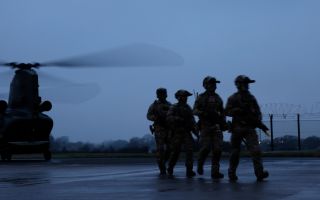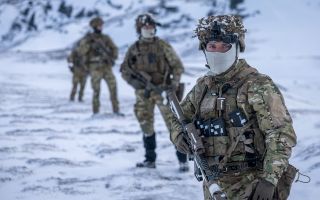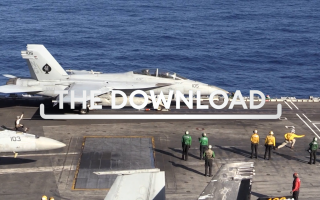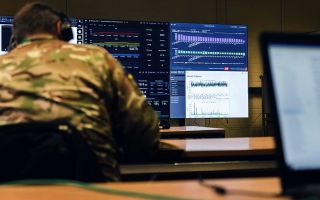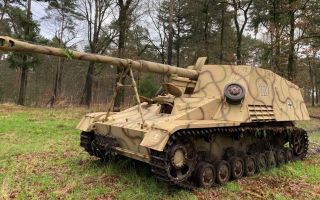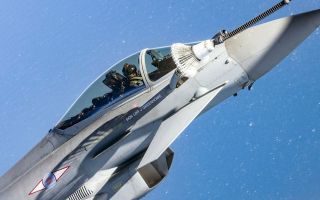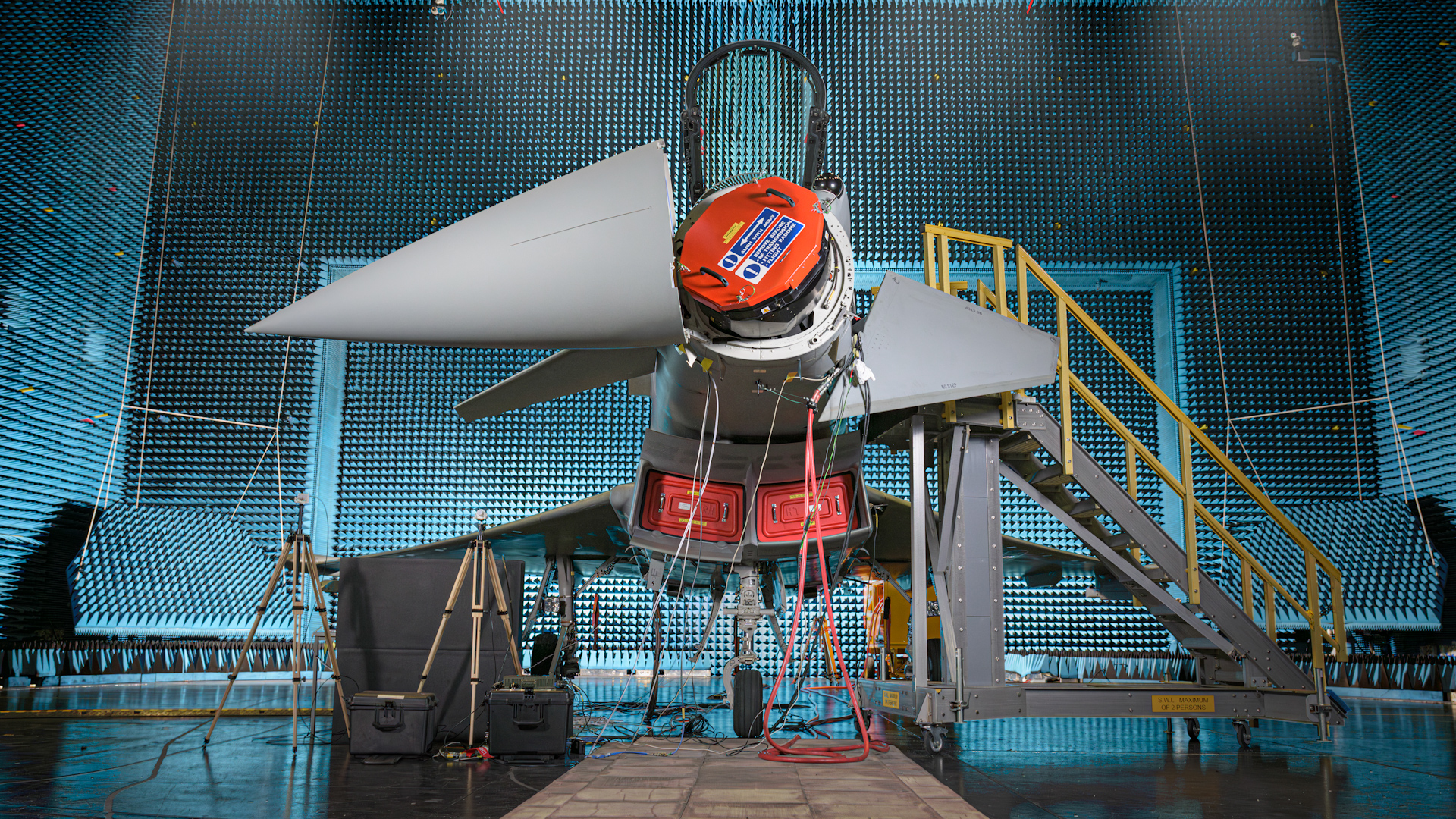
New radar allowing RAF pilots to locate suppress enemy air defences flies for the first time

A new advanced radar that will allow RAF pilots to locate, identify and suppress enemy air defences has flown for the first time.
A prototype of the European Common Radar System Mark 2 (ECRS Mk2) was operated on a Typhoon at BAE Systems in Lancashire.
As well as performing traditional functions, the ECRS Mk2 can provide advanced electronic warfare capabilities.
This will enable Typhoons to locate and deny use of an adversary's radar with a powerful electronic jamming attack, while staying beyond the reach of threats.
It also allows for greater freedom of manoeuvre while on missions and has extended-range missile guidance.
This ensures missiles remain accurate, on course and effective over a longer distance.
Air Commodore Nick Lowe, Head of Capability Delivery Combat Air and Typhoon Senior Responsible Officer, RAF, said the test is a "positive step".
"Evolution of Typhoon's air combat capability is paramount to ensure it continues to deter potential aggressors, defend our nation and defeat our adversaries wherever we need to fly and fight whether for the UK or in our staunch support to the Nato alliance," he said.
The first flight follows a programme of integration through ground-based testing.
Tim Bungey, chief engineer for ECRS Mk2, Leonardo UK, said the radar's production design has been "progressing" parallel with the trials.
"The development of the ECRS Mk2 is fully using the UK's world-class radar design skills," he said.
"Over the past few months, its processor, receiver and antenna power supply and control units have all been re-engineered from the prototype design to further enhance the capacity, capability and performance of the Mk2 system in alignment with the new antenna and electronic warfare capability."
The radar is designed to be operational most, if not all, of the time, because it can degrade gracefully – it continues to function at a lower capacity rather than shutting down entirely if components fail.
And any failures are also compensated for by backup or duplicate elements, so if one part fails, another can take over.
Earlier in the week, the Defence Procurement Minister said teams across the MOD and industry were working to meet the major milestone of the first flight of ECRS Mk2 over the coming weeks.

